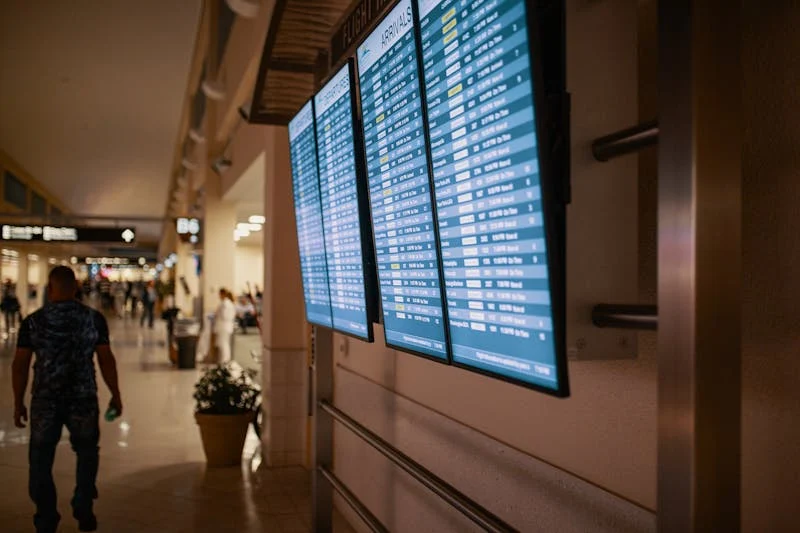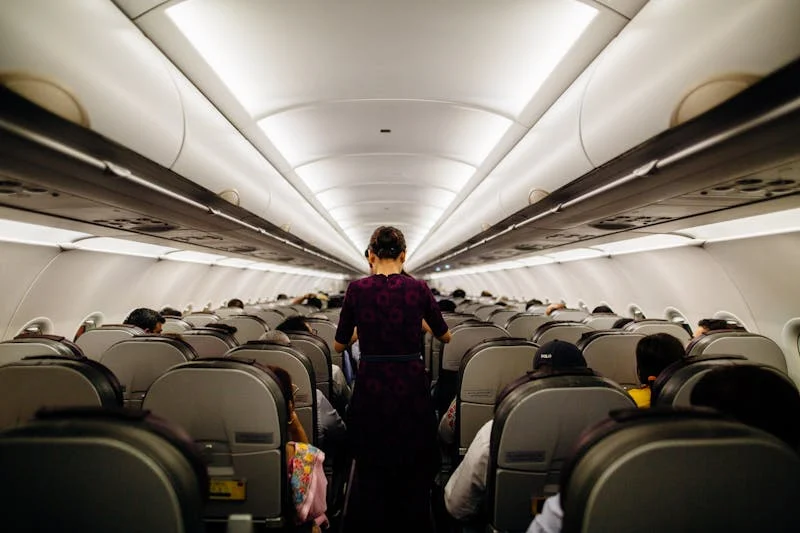Introduction
One common misconception about the profession is whether flight attendants come home every night or if they have extended periods away from home.
Flight attendants are essential members of the airline industry, responsible for ensuring the safety and comfort of passengers during flights.
In this article, we will delve into the typical schedules and routines of flight attendants to shed light on this question.
What is the Life of a Flight Attendant Like?
Training and Qualifications
Becoming a flight attendant requires rigorous training and specific qualifications.
Individuals must typically be at least 18 years old, hold a high school diploma or equivalent, and have excellent communication skills.
Training programs cover topics such as safety procedures, customer service, and emergency protocols.
Once certified, flight attendants must also pass background checks and obtain necessary visas for international travel.
Work Environment
Flight attendants work in a dynamic and fast-paced environment.
They interact with passengers from diverse backgrounds, handle various inflight situations, and ensure compliance with safety regulations.
Despite the challenges, many flight attendants enjoy the opportunity to travel, meet new people, and experience different cultures.
Schedule and Routines
The schedules of flight attendants can vary significantly depending on the airline and routes they are assigned.
While some flight attendants may work primarily on short-haul flights that allow them to return home each night, others may be assigned to long-haul or international flights that require overnight stays in different cities or countries.
This variation in schedules can impact the amount of time flight attendants spend away from home.
Do Flight Attendants Come Home Every Night?
Short-Haul Flights
Flight attendants working on short-haul flights, such as domestic routes or regional flights, often have schedules that allow them to return home each night.
These flights typically involve quick turnarounds, with flight attendants completing multiple flights in a day and returning to their home base in the evening.
This schedule may provide more stability and predictability for flight attendants who prefer to be home daily.
Long-Haul Flights
In contrast, flight attendants assigned to long-haul flights, which can last several hours to over a day, often require overnight layovers in different cities.
These flights may include transcontinental or international routes, necessitating stays in hotels or designated crew accommodations at the destination.
While long-haul flights offer the opportunity to visit new places, they also mean extended periods away from home.
Reserve or Standby Duty
Additionally, some flight attendants may be on reserve or standby duty, where they are on call and ready to be assigned to flights at short notice.
This unpredictable schedule can result in last-minute assignments with varying durations, making it challenging for flight attendants to plan their time at home.
Reserve duty is common for new flight attendants or those seeking more flexibility in their schedules.
Commuting Challenges
For flight attendants who do not live near their airline’s base or hub, commuting to work can present logistical challenges.
Long commutes or connecting flights to reach their assigned base can further add to the time spent away from home.
Some flight attendants choose to temporarily relocate or arrange crash pads near their base to minimize commuting time and increase rest between flights.

How do Flight Attendants Stay Connected with Home?
Technology
Advancements in technology have made it easier for flight attendants to stay connected with their families and loved ones while away.
Many airlines provide inflight Wi-Fi, allowing flight attendants to communicate via email, messaging apps, or video calls during breaks.
Smartphones and tablets also enable flight attendants to stay updated and connected with real-time communication.
Communication Apps
Popular communication apps such as WhatsApp, Facebook, and FaceTime are commonly used by flight attendants to stay in touch with family and friends.
These apps offer voice and video calling, messaging, and file sharing capabilities, enabling flight attendants to bridge the distance and maintain meaningful connections with their support networks.
Sharing photos and updates from their travels can also help flight attendants stay connected.
Work-Life Balance
Maintaining a healthy work-life balance is essential for flight attendants to prevent burnout and prioritize self-care.
Engaging in hobbies, exercise, social activities, and regular communication with loved ones can contribute to overall well-being.
Additionally, setting boundaries, managing stress, and seeking support from colleagues or counseling services can help flight attendants balance the demands of their job with personal time.
How do Airlines Support Flight Attendants?
Crew Support Programs
Airlines recognize the importance of supporting the well-being and mental health of their flight attendants.
Many carriers offer crew support programs, which provide resources for mental health, coping strategies, stress management, and peer support.
These programs aim to address the unique challenges faced by flight attendants and offer confidential avenues for seeking help or guidance.
Employee Assistance Programs
Employee assistance programs (EAPs) are often available to flight attendants as part of their benefits package.
EAPs offer counseling, crisis intervention, financial consultation, and other support services to address personal or work-related issues.
Flight attendants can access EAPs confidentially and receive assistance from trained professionals to navigate challenges and enhance their well-being.
Wellness Initiatives
Airlines may implement wellness initiatives and programs to promote the health and wellness of their flight attendants.
These initiatives may include fitness classes, mindfulness sessions, nutrition workshops, or access to gym facilities.
Encouraging healthy habits and self-care practices can benefit flight attendants both during their travels and when they are at home, fostering a culture of well-being within the airline industry.
How do Flight Attendants Cope with Jet Lag and Fatigue?
Jet Lag Symptoms
Flight attendants often experience jet lag as a result of traveling across different time zones and working irregular schedules.
Jet lag symptoms can include fatigue, insomnia, difficulty concentrating, and digestive issues.
The disruption of the body’s internal clock can impact sleep patterns and overall well-being, requiring flight attendants to adopt strategies to manage jet lag effectively.
Coping Strategies
To cope with jet lag and fatigue, flight attendants may implement various strategies to regulate their sleep-wake cycle and adjust to new time zones.
Strategies such as maintaining a consistent sleep schedule, staying hydrated, exposing oneself to natural light, and taking short naps can help alleviate jet lag symptoms.
Flight attendants may also consult with healthcare professionals for personalized recommendations.
Rest Periods
Adequate rest periods are essential for flight attendants to recover from long flights, combat fatigue, and ensure their readiness for subsequent duties.
Regulatory guidelines governing crew rest periods aim to promote fatigue management and crew alertness during flights.
Airlines adhere to these guidelines to prioritize the safety and well-being of their flight attendants and passengers.
Do Flight Attendants Have Time for Personal Activities?
Downtime between Flights
Flight attendants may have downtime between flights, depending on the duration of layovers and turnaround times.
This downtime can vary from a few hours to several days, providing opportunities for flight attendants to explore the destination, engage in leisure activities, or relax in their accommodations.
Some flight attendants use this time for sightseeing, shopping, dining out, or attending local events.
Personal Development
Flight attendants often have flexible schedules that allow for personal development activities during their time off.
Pursuing hobbies, attending classes or workshops, volunteering, or spending time with loved ones are ways flight attendants prioritize personal growth and well-being.
Balancing work commitments with personal activities is crucial for maintaining a fulfilling and meaningful lifestyle.

Time Management
Effective time management is key for flight attendants to maximize their time for personal activities while fulfilling work responsibilities.
Planning ahead, setting priorities, delegating tasks, and maintaining a calendar or schedule can help flight attendants optimize their time and avoid feeling overwhelmed.
Balancing work, travel, and personal commitments requires adaptability and organization.
Frequently Asked Questions (FAQs)
1. Do Flight Attendants Have a Set Schedule?
Flight attendants’ schedules can vary based on the type of flights they are assigned, with some working short-haul flights that allow for daily returns home and others on long-haul flights with overnight layovers.
2. How Often Do Flight Attendants Return Home?
The frequency of flight attendants returning home depends on their assigned flights and schedules, with some returning home daily and others spending extended periods away on international or long-haul flights.
3. Do Airlines Provide Support for Flight Attendants’ Well-Being?
Airlines offer crew support programs, employee assistance programs, wellness initiatives, and resources to promote the mental health and well-being of their flight attendants.
4. How Do Flight Attendants Cope with Jet Lag?
Flight attendants use coping strategies such as maintaining a consistent sleep schedule, staying hydrated, and seeking medical advice to manage jet lag symptoms and fatigue.
5. Can Flight Attendants Pursue Personal Activities during Layovers?
Flight attendants may have downtime between flights to engage in personal activities, explore the destination, pursue hobbies, or spend time with loved ones.
6. How Important is Work-Life Balance for Flight Attendants?
Work-life balance is crucial for flight attendants to prevent burnout, prioritize self-care, and maintain overall well-being while managing the demands of their job and personal life.
Conclusion
In conclusion, the lifestyle of flight attendants involves a dynamic mix of travel, customer service, and time away from home.
While some flight attendants may return home every night from short-haul flights, others face extended periods away on long-haul or international routes.
Airlines provide support programs, wellness initiatives, and resources to help flight attendants cope with the challenges of the profession and prioritize their well-being.
Despite the demands of the job, flight attendants find ways to balance work and personal life, staying connected with loved ones and pursuing personal activities during their travels.
The unique experiences and opportunities that come with being a flight attendant make it a rewarding and fulfilling career for those who embrace the adventure.
So, the next time you board a flight, remember the dedicated flight attendants who work tirelessly to ensure your safety and comfort in the skies.

